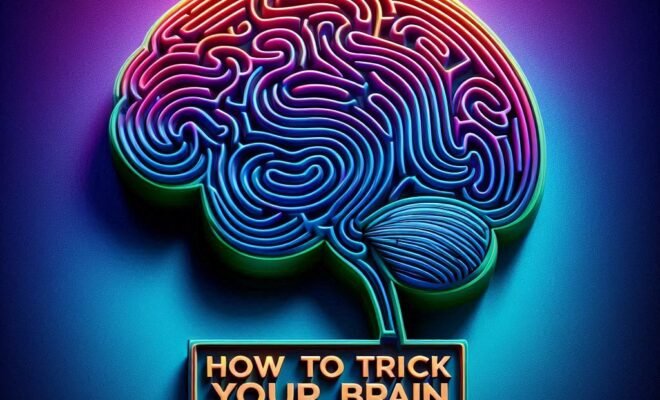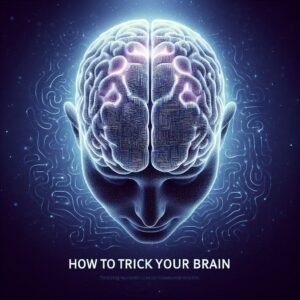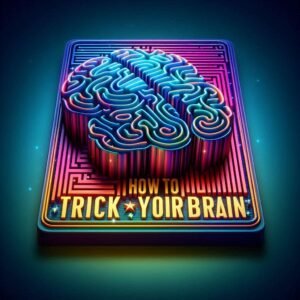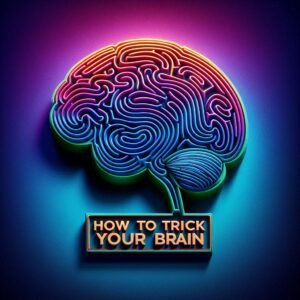This “7-Second Brain Trick” Is Better Than The Law of Attraction

Neuroscience of Cognitive Enhancement: Evidence-Based Techniques for Optimizing Brain Function Neuroscience of Cognitive Enhancement: Evidence-Based Techniques for Optimizing Brain Function
Unlocking Your Brain’s Potential: The Science Behind Cognitive Enhancement Techniques
In our quest for self-improvement, we’re constantly searching for methods to enhance our mental capabilities. Recent advances in neuroscience have revealed fascinating insights about our brain’s untapped potential and how specific techniques might help us access more of our cognitive resources. This article explores the science behind brain optimization, examining evidence-based approaches that may help improve memory, creativity, and cognitive function.
The Human Brain: A Marvel of Untapped Potential
The human brain remains one of the most complex structures in the known universe. With approximately 86 billion neurons forming trillions of connections, our brains possess remarkable capabilities that we rarely utilize to their fullest extent. Neuroscientists continue to uncover the intricate mechanisms that govern how we think, learn, remember, and create.
“What we know about the brain is just the tip of the iceberg,” says Dr. Michael Merzenich, professor emeritus at the University of California San Francisco and pioneer in neuroplasticity research. “The brain’s capacity to reorganize itself by forming new neural connections throughout life offers tremendous opportunity for enhancement.”
This neuroplasticity—the brain’s ability to change and adapt—provides the foundation for many cognitive enhancement techniques being studied today.
Beyond Magical Thinking: The Science of Brain Optimization
While pop culture often portrays brain enhancement through oversimplified concepts like the “Law of Attraction,” the scientific community has been researching evidence-based approaches that produce measurable results. These techniques don’t rely on mystical thinking but instead leverage our understanding of neurobiology.
Neural Synchronization: Connecting Brain Regions
One of the most promising areas of research involves neural synchronization—getting different regions of the brain to communicate more effectively. When various areas of the brain work in harmony, cognitive processes like memory formation, creative problem-solving, and information processing become more efficient.
Studies using electroencephalography (EEG) have shown that certain mental exercises can increase synchronization between the prefrontal cortex (responsible for executive function), the hippocampus (crucial for memory), and other key brain regions. This improved neural connectivity correlates with enhanced cognitive performance on various tasks.
Evidence-Based Brain Enhancement Techniques
1. Focused Attention Meditation
Research published in the journal “Frontiers in Human Neuroscience” demonstrates that regular meditation practice can significantly alter brain structure and function. Even brief meditation sessions have been shown to enhance attention and working memory.
“Meditation isn’t just about relaxation,” explains neuroscientist Dr. Richard Davidson, founder of the Center for Healthy Minds. “It’s a form of mental training that produces measurable changes in brain regions associated with attention, emotional regulation, and self-awareness.”
A consistent practice of just 10-15 minutes daily has been shown to increase gray matter density in regions critical for learning and memory.
2. Neurofeedback Training
Neurofeedback allows individuals to observe their brain activity in real-time and learn to regulate it. This technology has shown promise in helping people optimize brain wave patterns associated with peak performance states.
A 2020 study published in “NeuroImage” found that participants who underwent neurofeedback training demonstrated improved cognitive flexibility and problem-solving abilities. The training helped subjects achieve optimal brain states characterized by increased alpha and theta waves—patterns associated with deep focus and creativity.
3. Sleep Optimization Techniques
Perhaps no natural process is more important for cognitive enhancement than quality sleep. During deep sleep phases, the brain consolidates memories, clears metabolic waste through the glymphatic system, and performs essential maintenance functions.
“Sleep is the most underrated cognitive enhancer available to us,” notes Dr. Matthew Walker, neuroscientist and sleep researcher at UC Berkeley. “Even small improvements in sleep quality can lead to substantial gains in cognitive function.”
Techniques such as consistent sleep scheduling, temperature regulation, and pre-sleep relaxation routines have been shown to enhance slow-wave sleep, the stage most critical for cognitive restoration.
4. Brain-Derived Neurotrophic Factor (BDNF) Stimulation
BDNF is a protein that acts like fertilizer for neural connections, promoting neurogenesis (the formation of new neurons) and strengthening existing neural networks. Research shows that certain activities reliably increase BDNF production:
- High-intensity interval exercise
- Complex learning tasks
- Dietary factors including omega-3 fatty acids and certain flavonoids
- Intermittent fasting protocols
“BDNF activation represents one of our most powerful levers for enhancing cognitive capacity,” explains neuroscientist Dr. Sandrine Thuret of King’s College London. “Activities that increase BDNF create an optimal environment for neuronal growth and connection.”
The Role of Cognitive Priming
Short mental preparation techniques, sometimes referred to as “brain priming,” have demonstrated effectiveness in preparing the mind for optimal performance. These brief exercises activate specific neural networks and prepare them for upcoming cognitive tasks.
Research from Stanford University shows that a targeted 5-10 second visualization exercise before demanding cognitive work can enhance performance by activating relevant brain regions in advance. These techniques work not through mystical means but through established principles of neural priming and attentional focus.
Beware of Exaggerated Claims
While legitimate research into cognitive enhancement continues to advance, consumers should maintain healthy skepticism toward products or programs promising miraculous results. The most effective brain optimization approaches typically:
- Have peer-reviewed research supporting their mechanisms
- Produce gradual, sustainable improvements rather than instant transformations
- Work through established neurobiological principles
- Are consistent with our understanding of brain function
“The brain is remarkably adaptive, but it doesn’t transform overnight,” cautions Dr. Alvaro Pascual-Leone, Professor of Neurology at Harvard Medical School. “Real cognitive enhancement comes through consistent application of evidence-based techniques, not quick fixes.”
Integrating Brain Enhancement into Daily Life
For those interested in optimizing their cognitive function, the most effective approach combines multiple evidence-based techniques:
- Prioritize sleep quality and consistency
- Engage in regular physical exercise, particularly including high-intensity intervals
- Practice focused attention techniques like meditation
- Challenge your brain with novel learning experiences
- Maintain social connections, which provide crucial cognitive stimulation
- Follow a brain-healthy diet rich in omega-3s, antioxidants, and phytonutrients
This integrated approach addresses multiple mechanisms of brain enhancement simultaneously, creating synergistic effects that exceed what any single technique could accomplish alone.
Conclusion
The human brain’s remarkable plasticity offers genuine opportunities for cognitive enhancement through science-based approaches. While we should remain skeptical of oversimplified “tricks” promising instant results, substantial evidence supports the effectiveness of specific techniques that work with our brain’s natural mechanisms.
By embracing evidence-based methods for brain optimization, we can potentially enhance memory, creativity, focus, and cognitive resilience—capabilities that serve us well in both professional endeavors and personal growth. The most powerful brain enhancement doesn’t come from mystical shortcuts but through consistent application of techniques aligned with our evolving understanding of neuroscience.













